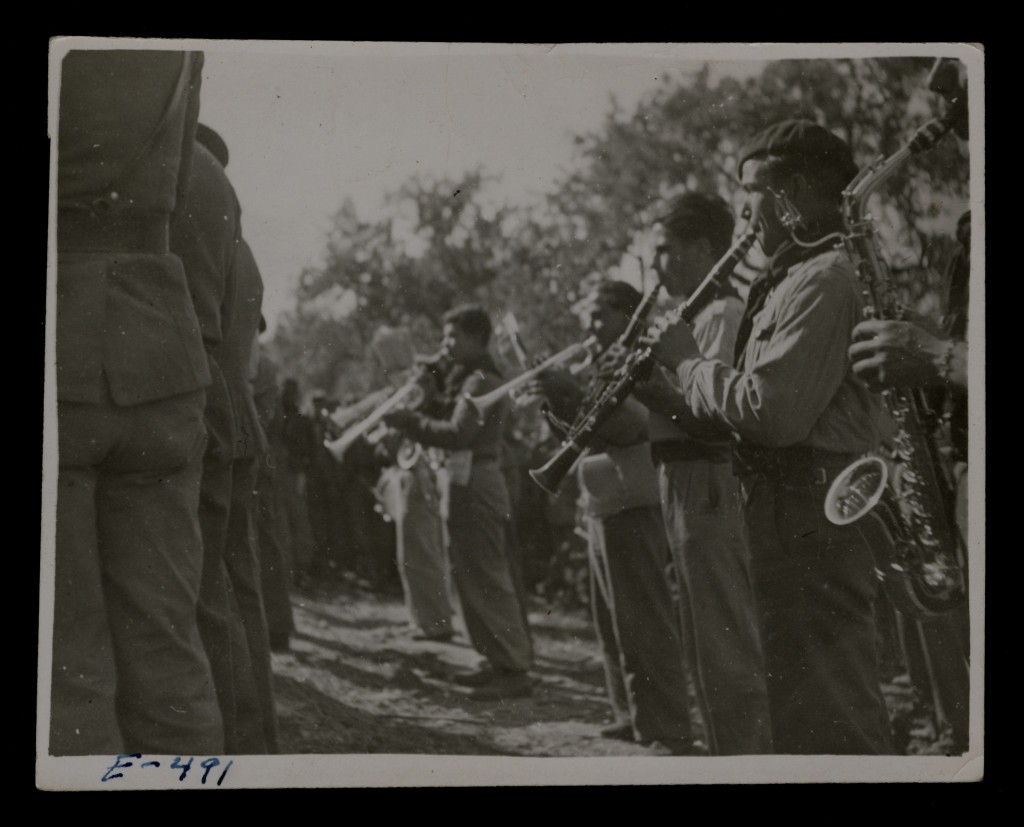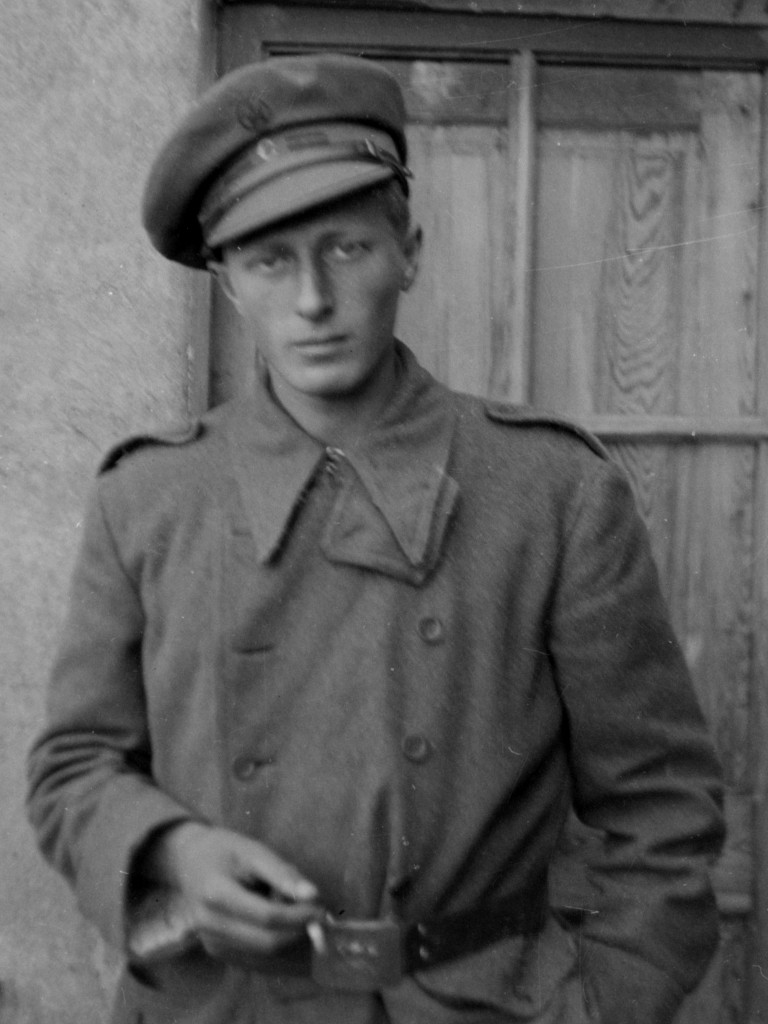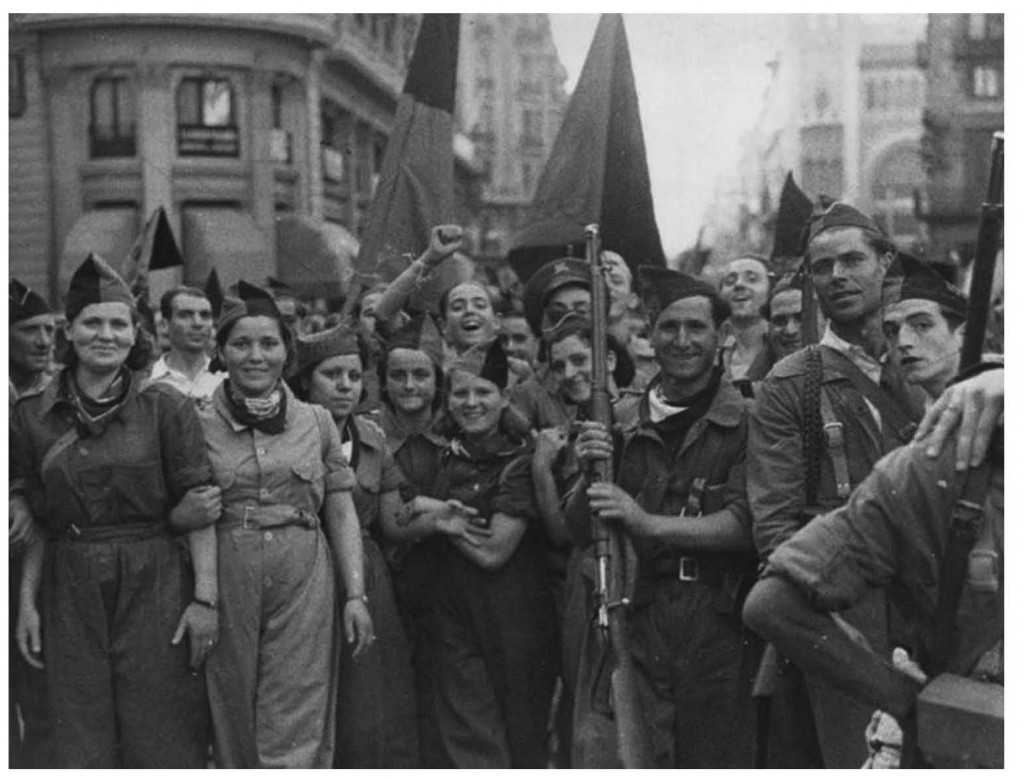Watt Prizes Recognize Outstanding Student Writing
The 2017 George Watt Essay Prize for the best writing on the Spanish Civil War received a record number of submissions. Students from Canada, Egypt, and 18 U.S. states submitted essays, poems, and stories for this year’s annual prizes.
Juliann Susas of Johns Hopkins University received the award for the best essay in the undergraduate category for her splendid piece, “Spanish Civil War Music: A Crescendo of Ideological Disjuncture” (summary below). Susas delves into the rich history of music that Spaniards sang during the Civil War and compares Nationalist and Republican songs to see how each side understood the war and how the songs reflected competing values. Based on Spanish and English-language sources, Susas shows the importance of songs in understanding the opposing combatants’ worldviews.
This is the first year that the Watt Essay Prize included a pre-collegiate category and we received 21 submissions, including several co-authored pieces. The submissions were so strong that the jury decided to award two students, one in non-fiction and another in fiction. Raphael Wood and Liam Doyle’s essay “A Revolution in Romanticism: The Shift in Fervor within the International Brigades and the Anarcho-Syndicalists throughout the Spanish Civil War” (summary below) studies the shaky position of the Anarcho-Syndicalists in the Republican coalition and draws on primary sources from the educational resources section of the ALBA website and several secondary sources. Doyle and Wood are students of ALBA teaching institute alum George Snook (recently featured in “Faces of ALBA”) at Packer Collegiate Institute in Brooklyn. Josie Fischels, a student at Independence Jr-Senior High School in Independence, Iowa also won a Watt award for her story “Shattered: The Bombing of Guernica.” Fischels’ beautiful writing impressed the jury in her moving story of a woman who grew up in Guernica and experienced the bombing, taking her grandchildren to see Pablo Picasso’s Guernica in the Reina Sofia Museum.
The jury for the Watt award was comprised of Angela Giral (Columbia University), Josh Goode (Claremont Graduate University), Gina Herrmann (University of Oregon), and Aaron Retish (Wayne State University). The George Watt Memorial Essay award honors the memory of Abraham Lincoln Brigade veteran George Watt (1914-1994), a social worker, writer, and lifelong activist who was central to the creation of ALBA.

15th International Brigade band, March 1938. (Tamiment Library, NYU, 15th IB Photo Collection, Photo #11_1498)
“Spanish Civil War Music: A Crescendo of Ideological Disjuncture”
By Juliann Susas
Analyzing the conflicting political ideologies of the Spanish Civil War through a cultural lens is not a novel concept. However, much of academic scholarship has been dedicated to the study of visual art and literature as artistic expressions of the political contest, ignoring the significance of music to the Spanish Civil War era. Music was more accessible to the illiterate people and more integral to the soldier’s experience. “Spanish Civil War Music” strives to bridge this gap in cultural analysis of the Spanish Civil War by examining patriotic songs and war anthems of the time.
Commonalities in the musical pieces composed by the Nationalists and Republicans demonstrate music as an instrument of solidarity to encourage soldiers to persevere, testaments to the ardent patriotism of war heroes and other important figures, and as a means of propaganda. Viewing music as an example of Spanish Civil War propaganda, “Spanish Civil War Music” exposes the political divide between the Nationalists and Republicans. Nationalists perceived the war as a conflict to establish a new and better regime for Spain. Republicans, on the other hand, viewed the war as a fight for freedom and the defense of progress of the Spanish republic. Overall, “Spanish Civil War Music” reveals how music can be utilized as a medium to explore the political dissonances of the Spanish Civil War. (Whole text here.)
A Revolution in Romanticism
By Liam Doyle & Raphael Wood
Our essay explores the romanticism that existed within the International Brigades and the Anarcho-Syndicalist faction during the Spanish Civil War. Both parties promoted romantic notions of egalitarianism and humanism, yet their different circumstances led to very divergent outcomes. Through the lens of Abraham Lincoln Brigaders like Alvah Bessie and Benjamin Iceland, we discovered that the romantic idealism of the Internationals in Spain allowed their movement, a loose confederation, to transcend the war. Meanwhile, the Anarcho-Syndicalist’s struggle to protect their homes and families necessitated a doctrinaire pragmatism which undermined their romantic qualities and entrenched them in the factionalism of Republican Spain. The Brigaders’ cause would define the fight against Fascism in World War II, living on even to the present, while the Anarcho-Syndicalist movement was the last bastion of utopian socialism at such a national level in the Western world. In fact, the evolution of these two movements was emblematic of the evolution of romanticism in the world as a whole. After all, we no longer associate feelings of optimism and passion with Marxist notions of revolution – as the Anarcho-Syndicalists did – but rather with notions of democracy, international solidarity, and secular humanism – values the International Brigades embodied. (Whole text here.)














